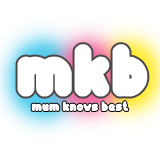Meningitis, an inflammation of the membranes that cover the brain and spinal cord, can be caused by infection with a bacterium or virus. There are two main types of meningitis:
- Viral meningitis - tends to appear in summer months and is generally much less severe. Most people recover fully. Initially, vague flu-like symptoms occur with fever and muscle aches.
- Bacterial meningitis - tends to be more severe, with a serious risk of complications and death. Any type of bacteria can cause it, but in the UK the most common types are meningococcal and pneumococcal bacteria.
If you're worried that someone has meningitis, or has a rash that doesn't fade when you press a glass on it (the glass test), you must seek medical advise immediately.
Symptoms in babies and small children include:
- Irritability, or dislike of being handled
- A shrill cry or unusual moaning
- Refusal to feed
- Tense or bulging fontanelle (soft spot on head)
- Pale blotchy skin
- Rapid breathing
- Fever
- Lethargy
Websites for advice and support:
http://www.meningitis-trust.org/meningitis-info/signs-and-symptoms/babies-and-toddlers/?gclid=CI31ipG86bECFYcLfAodi1kATw
http://www.meningitis-trust.org/
http://www.bbc.co.uk/health/physical_health/conditions/meningitis2.shtml

.jpg)
No comments:
Post a Comment